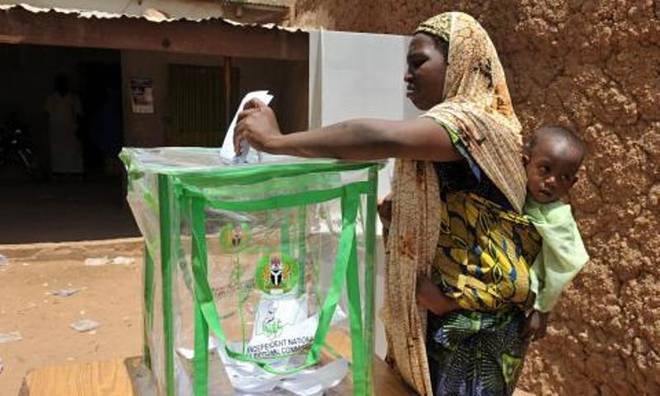
Senate president Bukola Saraki says Nigeria is paying “lip service” to allowing more women take part in politics and decision making process, despite the “affirmative 35%” pledge to ensure 35 in 100 elective seats are occupied by women.
“After 18 years of democracy, Nigeria has consistently recorded low participation of women in politics,” he said in a speech delivered on his behalf by Senator Abiodun Olujjimi.
Olujimi, senator for Ekiti South and a hopeful for the state governorship, delivered Saraki’s comments at a conference organised by United Nations Women to encourage political participation in West Africa.
The Central African Republic, Liberia, Guinea and Nigeria are expected to share comparative lessons with Namibia, Tunisia, Rwanda and Senegal in hopes of shoring up women participation in politics.
At least six in 10 elective offices in Rwanda are occupied by women—the world’s highest political representation for women, according to UNWomen.
Senegal has the highest number of women in elected office, with 47% of its parliamentary seats occupied by women. Across Europe, the figure is more than 30%.
“Under representation of women in law making is a sticky point,” said Saraki, in comments delivered by Olujimi. “Cumulative, it is under 10%, less than the ‘affirmative 35%’”.
He said the current level of participation of women in politics “needs a shift”, as well as “policies that improve the economic power of women and therefore the economic power of the country as a whole”.
“We need to lift the presumed supportive role of the average woman to one that’s fully empowered and representative,” Saraki noted.
Political parties take the blame for refusing women leadership positions in party structures, according to the Independent National Electoral Commission.
Many political parties have a position for women leaders, who help mobilize female voters, but ruling parties in countries West Africa is expected to study have independent “women’s council” open to every female over age 18.
“Nigeria continues to face challenges in engaging women’s potential,” said Adekunle Ogunsola, national commissioner for INEC, noting the country needed measures to “fast track closing of gender gaps.”
One recent study of inequity notes that while it will take around 99 years for the world to close gender gap, it would take Nigeria 135 years.
UN Women is working with political parties to get more women into leadership positions which could open up more positions for women.
“The situation we have is not sustainable. And we hope that the democracy we are practising in national politics will be reflected in the work of political parties themselves,” said Comfort Lamptey, UN Women country representative in Nigeria.
“The fact Rwanda today is the country with the highest representation of women in the world—and that’s important to know—stems from the political will of the leadership of Rwanda.
“Senegal in West Africa has the highest representation of women in elected office—47% of the Senegalese parliament is women. They got there because they adopted a law and so political will is important, laws are important to really to try to break the deadlock and create a level playing field.”

 Join Daily Trust WhatsApp Community For Quick Access To News and Happenings Around You.
Join Daily Trust WhatsApp Community For Quick Access To News and Happenings Around You.



